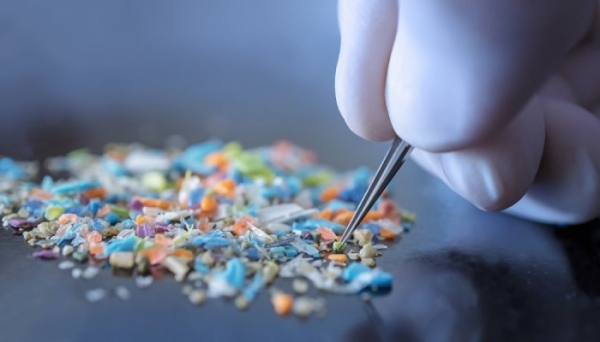
Plastic-based loose glitters and microbeads in cosmetics have been prohibited for sale in the European Union since October 17, 2023. The move is part of a more ambitious plan to curb down microplastics pollution in the EU by 30% by 2030.
The European Union has launched an ambitious plan to reduce pollution linked to microplastics. The aim is to reduce releases into the environment by 30% by 2030. Ultimately, the new rules [1] will prohibit the sale of microplastics as such, and of products to which microplastics have been added on purpose and that release those microplastics when used. According to the European Commission, this will prevent the release to the environment of about half a million tonnes of microplastics.
Microplastics are defined as synthetic polymer particles below five millimetres that are organic, insoluble and resist degradation.
Ban on loose glitter and microbeads
The first measures, for example the ban on plastic-based loose glitter and microbeads added to cosmetic formulations, have entered into force on October 17, 2023. In other cases, the sales ban will apply after a longer period (up to 12 years for some cosmetic products) to give affected stakeholders the time to develop and switch to alternatives.
The immediate ban on loose glitter, mainly made of plastic and aluminium, but also on microbeads which are used in the composition of cosmetic products such as scrubs, is justified by the immediate availability of usable alternatives.
Prevent unintentional release of plastic pellets
In addition, the European Commission announced other proposals on Monday October 16, this time targeting plastic pellets. The proposed regulation includes compulsory best handling practices for operators, mandatory certification and self-declarations, a harmonised methodology to estimate losses, with lighter requirements for SMEs.
In practice, companies will have to conduct risk assessments to ensure their operations are taking the right measures to avoid spillage. If there is spillage, they will have to act quickly to contain leaks and undertake cleaning operations if necessary.
The proposed text will now be discussed by the European Parliament and the Council.
According to the institution, between 52 and 184 thousand tonnes of pellets are released in the environment each year due to mishandling throughout the entire supply chain. The commission hopes the proposal will reduce pellet release by up to 74 percent.
Ubiquitous pollution
“Microplastics are pervasive and we need to stop the pollution at the source,” the EU’s environment commissioner Virginijus Sinkevicius said.
Persistent, very mobile, and hard to remove from nature, microplastics have been found all over the world, even in the most remote locations, and in the human body. The risks related to high levels of human exposure are a cause of grave concern.
